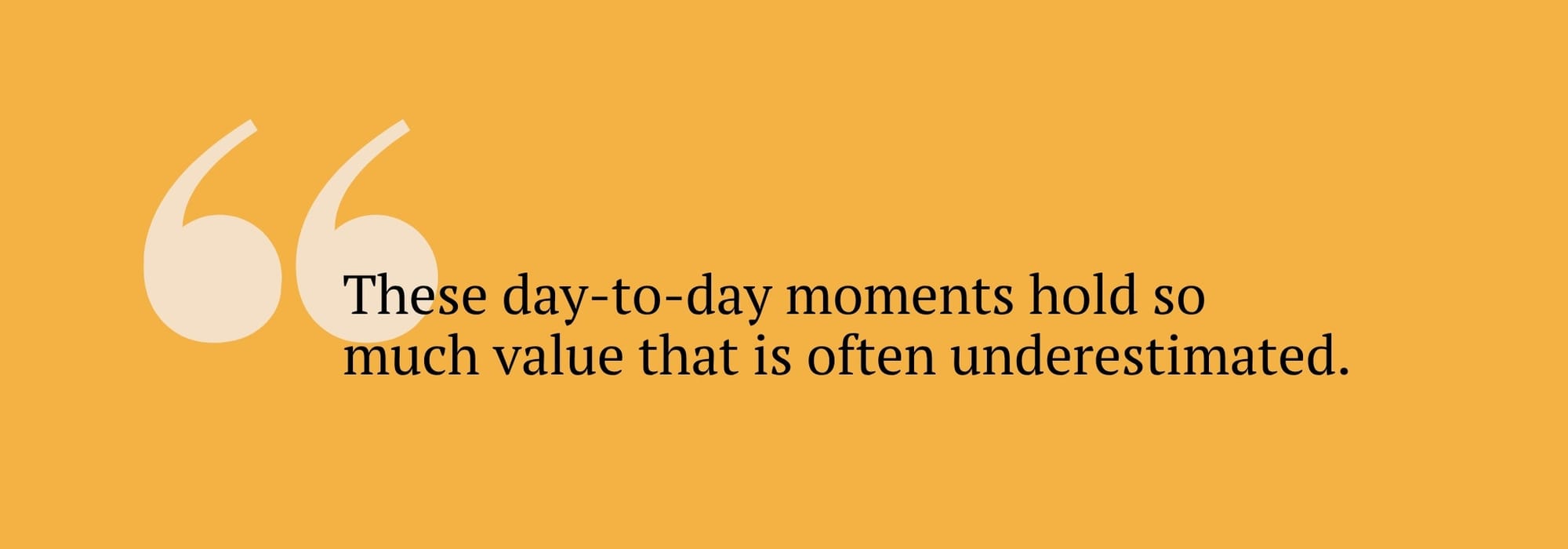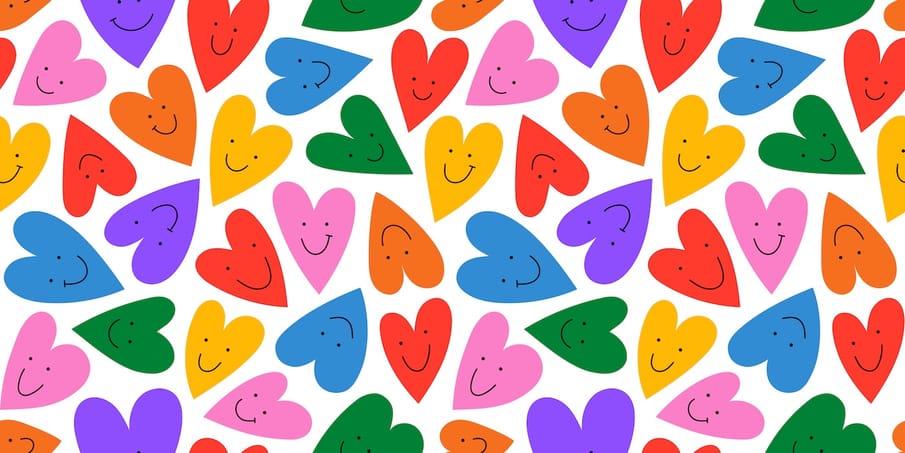Happy stories are contagious, and here’s how you can tell them, too
Every summer, my partner picks a bunch of flowers for his mum that he’s grown from seeds in our garden. Paul’s mum is always overjoyed with his bunches of yellow sunflowers and pink dahlias, and it makes her feel very proud to have raised such a talented gardener, who has shown so much skill and devotion in tending to our garden. As you might expect, she responds by encouraging his efforts, and treating him to more seed packs from our local garden centre to sprinkle in the woodlands to the back of our home. Currently, he’s nurturing some blue periwinkles that his mum bought to grow along the side of our house, adding a bright pop of colour.
Are you smiling? I’m guessing you might be, if recent research from China is anything to go by. Scientists at Renmin University’s psychology department have found that sharing ‘happy stories’ can make others feel good, too. Whether it’s a tale about finding a hidden treasure in a charity shop, a random act of kindness you witnessed, or a compliment from a colleague, scientists say the feeling of joy from sharing these stories is ‘contagious’. So, it seems, spreading joy has never been so much fun – or so easy!
Once I heard about this scientific evidence, I began actively trying ‘happy talk’ in my daily life, and have been amazed at how people have responded. Conversations have had the feel-good factor and deepened, lasting longer. It seems that when the talk is joyful, friends stick around to listen.
I actually tried it over coffee with a good friend last week. I began our conversation with some good news. “I just got a text from my friend Jo, having played Cupid,” I began. “I set them up on a date, and, according to Jo, things are looking promising.” The tale prompted a smile. We both got a little lost in a good conversation, but both of us texted after to say what a great catch-up it had been, and to meet again soon.

I’m not alone in road-testing the study. Dr Andy Cope, a happiness expert, positive psychologist and author of The Art of Being Brilliant, tells me the research has spurred him on to be the best grandpa he can, and hopes his grandson can “catch” a little joy from him. Andy says: “I need to be the best grandpa in the world. That means reading the story like I mean it, with expression and funny voices. The adventures full of derring-do, and the funny bits laugh-out-loud. The research is clear: if I can be genuinely up for it, they will catch my happiness and joy.”
Of course, it’s easy to slip into ‘average mode’ – the habit of trying to get the story done and dusted so we can focus on something we may feel is more ‘important’. Or perhaps rushing over these seemingly small, joyful moments because we view them as ‘humblebragging’, or indulging in ourselves. But the truth is that these day-to-day moments hold so much value that is often underestimated. The research is about story-telling, but I think the results can be applied to conversations of any type. Instead of asking people ‘How was your day?’, why not upgrade to ‘What was the highlight of your day?’ This opens the door to not only share a smile-worthy anecdote, but also offers an opportunity for a deeper connection and conversation – and so the contagion begins.
Of course, the idea underpinning this is the benefit of reflecting on and sharing these joyful moments, but that’s not to say we have to fake or force happiness. The human experience is made up of a spectrum of emotions, and it’s perfectly normal to not feel positive all the time, and to acknowledge the frustrations, disappointments, and sadness in life, too. But it’s undoubtedly interesting and noteworthy that happiness is catching – a reminder that we can be subconsciously sending out, and soaking up, good vibes in those moments when we need a boost.
Happy coach and ‘happiologist’ Dal Banwait, from the US, is pleased to see that this study on emotional contagion reinforces the positive psychology perspective. She tells me: “This study measured individuals’ brain activity, and how it responds while processing emotional stories. It confirms that sharing happy personal stories is considered a crucial part of people’s daily lives, since it elicits positive emotions in both parties. Positive emotions generated from listening to a person tell their happy stories are transferable from one individual to the other. People are mostly impacted by happy stories, as it stimulates the brain, promoting good feelings. By sharing happy stories, individuals also create a close positive relationship and connection with others.”

Back in the UK, Smriti Joshi, lead psychologist at a mental health app, says: “The study looks at how sharing happy stories affects people’s emotions and connections with others. It found that when people listen to happy stories, they feel more connected and emotionally in-tune with the storyteller compared to when they hear neutral stories. This shows that sharing positive emotions through stories can improve relationships, and make people feel closer to each other. But it’s not just about how others feel – it can benefit you, too.
“We know that when we engage in positive talk and storytelling, it makes us feel good, triggering the dopamine receptors in our brains. Although it can be hard to get out of the habit of negative talk, the more we do so, the easier it becomes, like a muscle exercise. Talking yourself happy involves focusing on positive self-talk, and engaging in practices that elevate your mood and perspective,” say Smriti.
You see, it’s not just spring flowers that bring a smile to Paul’s mum’s face – happy talk from others can give us that warm, fuzzy feeling inside, and make us smile, too. So, you don’t need to feel guilty, or like you’re bragging, to regale people with a highlight from your day, or recount a small victory you’ve had. These little moments of delight can hold even more value when shared. Ultimately, it’s a great way for all of us to feel a little happier ever after.


Comments